
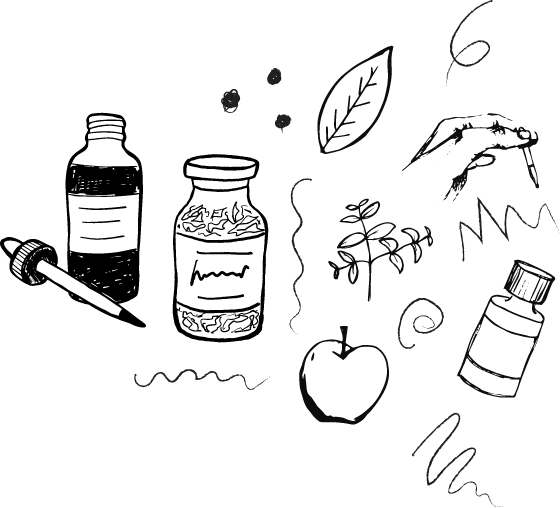

Naturopathy is gaining popularity as more Australians seek natural, holistic ways to care for their health. A naturopath focuses on supporting your body’s innate ability to heal by addressing the root causes of illness. Whether it’s through personalised diet advice, lifestyle changes, herbal medicine, or nutritional support, naturopathy aims to help you feel your best – naturally. At SAIT, our qualified naturopaths in Adelaide take a whole-person approach to health, offering tailored care to support your energy, digestion, hormones, immunity, and more.
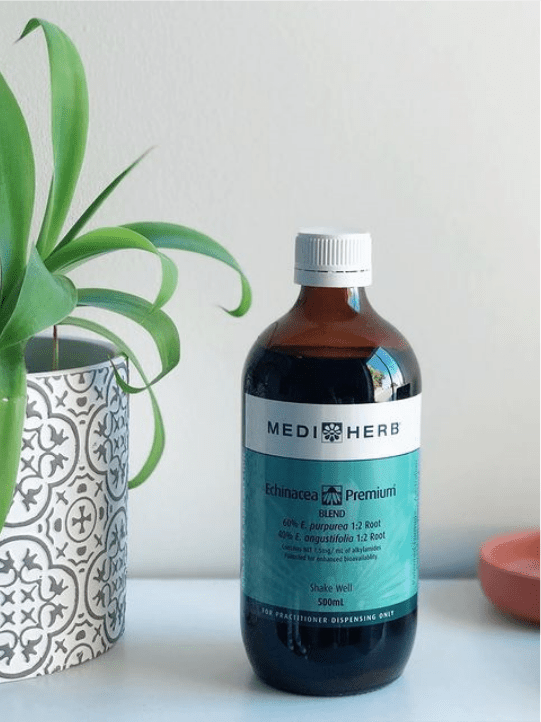
What is Naturopathy?
Naturopaths work with the body holistically. Investigating the cause of your health issues, through conversations, functional testing, and use natural methods to improve your negative symptoms. The key focus intends to improve your life and wellbeing through better health and sustainable habits. Naturopaths look at your medical history, lifestyle, and dietary habits to inform their decisions. Naturopaths also often use test results, such as blood tests, hormone testing, functional screening, vaginal swabs, and more, to inform their decisions and treatment plan approach. Naturopathy is a type of natural medicine that focusses on using your body’s ability to heal itself. Using various techniques and treatment methods, such as food, exercise, self-care, and more (see below), tailored to your unique needs, Naturopathy aims to support your healing and holistically improve your body, mind, and emotions – improving your current conditions and your general well-being.
Naturopathy combines evidence-based medicine with traditional practices. Naturopathy is based on using food as medicine, looking to heal you naturally and with the least intervention possible. Naturopathy works through making helpful changes in your diet and lifestyle to assist with a variety of problems and conditions.
Naturopathy is a preventative approach, allowing you to manage your illness or condition and stop it from reaching an unbearable point. It treats the underlying cause of your symptoms and leads to medium to long-term management of the cause to prevent you from experiencing symptoms again.
What treatment techniques are used in Naturopathy?
- Lifestyle modifications
- Meal plans and recipe development (tailored to your needs/body type/energy requirements)
- Stress management techniques
- Natural skin care routines
- Reduction of household and environmental toxins
- Exercise recommendations
- Self-care practices
- Creams and lotions (for skin care, eczema, acne, fungal infections, and warts)
- Herbal teas and tonics.
Amy will also provide nutritional medicine and herbal medicine as required.
Test results are often required by naturopaths to see various indicators and signs of deficiency. The different types of testing you may require are hormone testing, levels of vitamins/minerals, allergies, thyroid testing, cholesterol markers, inflammation, iron deficiencies, food intolerances, and more.
Why should I see a
Naturopath?
- Hormone health & women's health: dysmenorrhoea, pelvic pain, endometriosis, fertility issues, PCOS, irregular periods, hypothalamic amenorrhoea, PMS
- Skin conditions (eczema, psoriasis, acne)
- Gastrointestinal health (irregular bowels, IBS, food intolerances, chronic digestive issues)
- Nervous system support (emotional support, stress, anxiety, fatigue, insomnia)
But you don’t need a problem, condition, or change in circumstances to come and see a naturopath – they can also help you improve your general health and wellbeing. Naturopathy can help those just looking to improve their lifestyle; whether you just want a healthy meal plan, a few helpful self-care practices, or a better skin care routine.
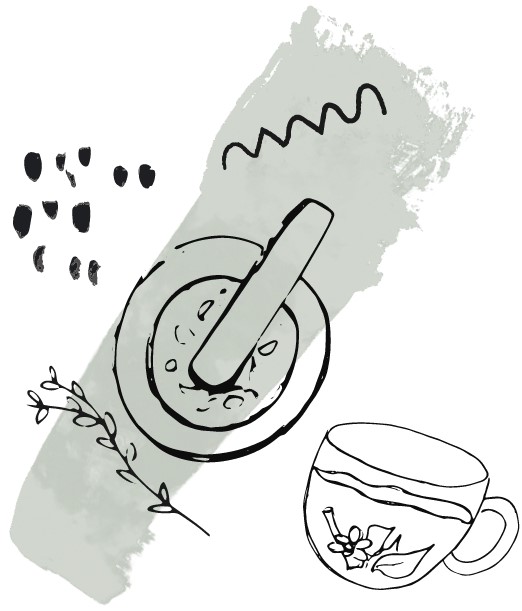
What is a typical
consultation like?
At SAIT, right here in the heart of Adelaide, your naturopathic care starts with a genuine conversation. We take the time to get to know you – your story, your health journey, and what matters most to you. In a safe and relaxed space, your naturopath Amy will guide you through a thorough one-on-one consultation, using both conversation and (where helpful) testing to understand what your body needs. From there, we’ll create a personalised plan that might include lifestyle, food and nutrition support, or herbal remedies — all grounded in evidence and tailored to you. Everything you share stays completely confidential, and we’re here to walk alongside you every step of the way.
The first consult will include some questions about your medical history and your family’s medical history. They will also ask about your current lifestyle and eating habits, your bowel movements, and how you feel your current health and wellbeing is going. Your Naturopath will educate you on the current state of your body and help you to understand yourself and your condition better.
We then use all the information from your chats to discover which areas of your body or health are out of balance. We may also suggest lifestyle recommendations that you can also use to improve your health and wellbeing. Your Naturopath Amy will explain your treatment plan in detail, so you feel empowered to put it into action, and send you away with relevant information and fact sheets for you to read up on at home.
Your follow-up sessions will be used to ensure the treatment plan is right for you, and your therapist will adjust it or provide further help as necessary.
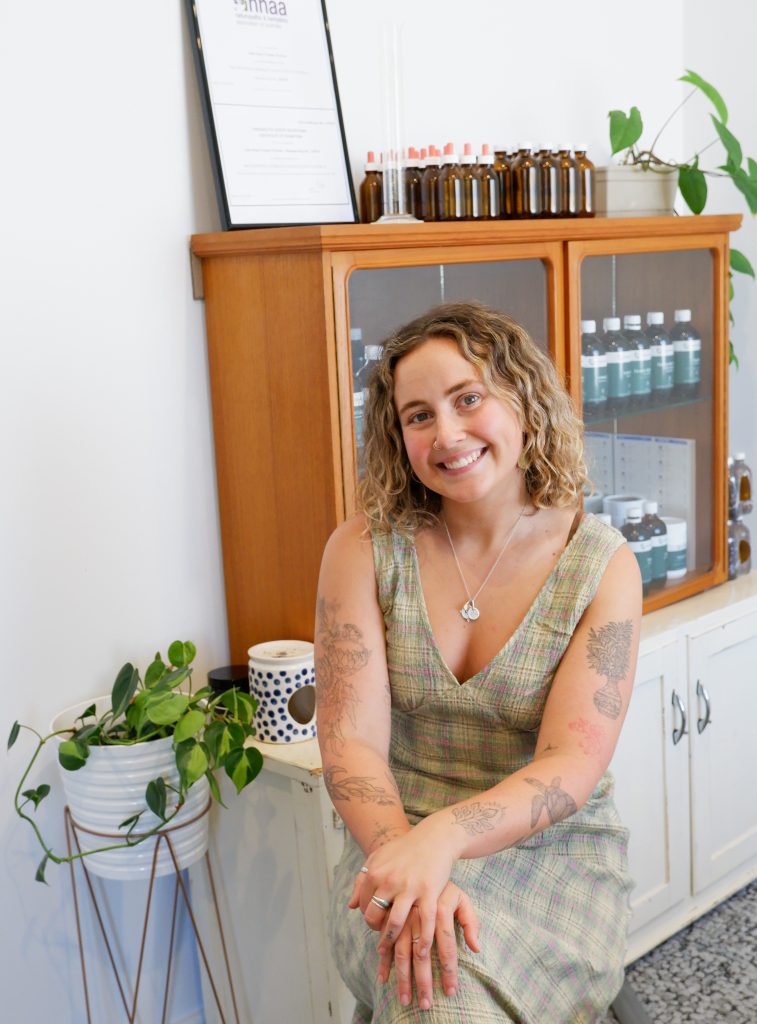
THE PRACTITIONER.
Amy frankel
Amy is SAIT’s resident Naturopath and herbalist, offering holistic and evidence-based care in our Adelaide clinic. She holds a Bachelor of Health Science in Naturopathy from Endeavour College and brings both scientific knowledge and a deep respect for traditional medicine to her work.
Amy supports clients of all backgrounds, with a special interest in women’s health, hormone balance, and gut health. Her approach is compassionate, whole-person-focused, and rooted in the belief that true healing happens when we address the body, mind, and environment together.
Known for her gentle, grounded presence, Amy blends modern naturopathic practices with herbal medicine, nutrition, and lifestyle guidance to help her clients feel empowered in their health journey. Whether you’re navigating chronic symptoms, fatigue, digestive issues, or just want to feel more balanced, Amy will walk alongside you with care, insight, and integrity.
Amy’s areas of interest include:
- Reproductive health (hormonal health, PCOS, endometriosis, cycle awareness, PMS, irregular cycles)
- Gastrointestinal health (irregular bowels, IBS, food intolerances, chronic digestive complaints: e.g bloating, reflux, SIBO)
- Nervous system support (emotional support, stress, anxiety, fatigue, insomnia)
- Managing endocrine disorders: thyroid (hypo/hyperthyroidism, diabetes management)
- Fertility, preconception care, post partum
- Skin conditions (eczema, psoriasis, acne)
- Immune support: reccurent colds/infections, autoimmune conditions, allergies, hayfever
Qualifications:
- Bachelor of Health Science (Naturopathy)
- Registered with the Naturopaths and Herbalists Association of Australia (NHAA)
Looking for a Naturopath in Adelaide? Amy offers holistic naturopathy services at SAIT to help you feel your best, naturally. Using evidence-based herbal medicine, nutritional support, and lifestyle recommendations, Amy creates personalised treatment plans that promote long-term health and wellbeing. Whether you’re managing chronic symptoms or simply want to feel more balanced, Amy is here to support your journey to better health.
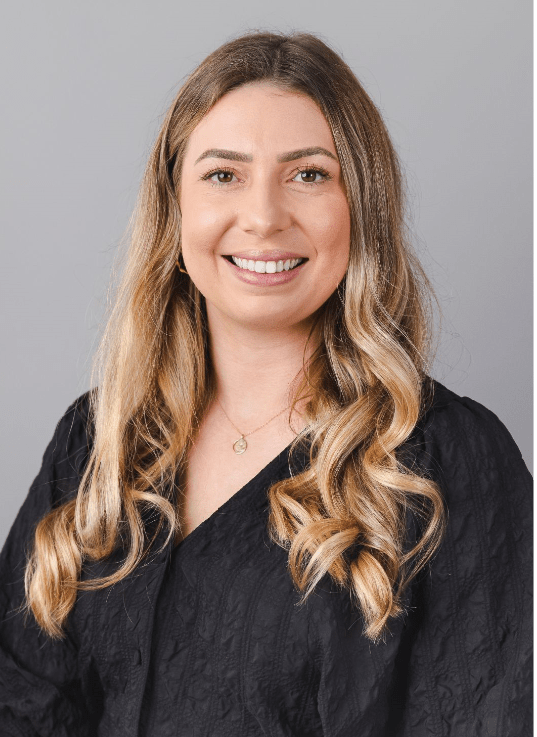
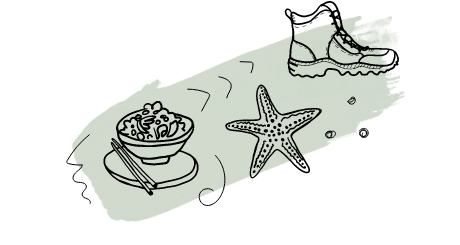

THE PRACTIONER.
Ebony Pfeiffer
- Skin conditions (eczema, psoriasis, adult acne)
- Gastrointestinal health (irregular bowels, IBS, food intolerances)
- Nervous system support (emotional support, stress, anxiety, fatigue, insomnia)
- Reproductive health (hormonal health, PCOS, endometriosis, cycle awareness)
- Children’s health (ASD, ADHD, food allergies/intolerances, fussy eating, constipation, diarrhoea, eczema)
- Bachelor of Health Science (Naturopathy)
- Registered with the Naturopaths and Herbalists Association of Australia (NHAA)
- First Aid with CPR Certificate
- Able to provide referrals to General, Functional, and Genetic Pathology Testing
